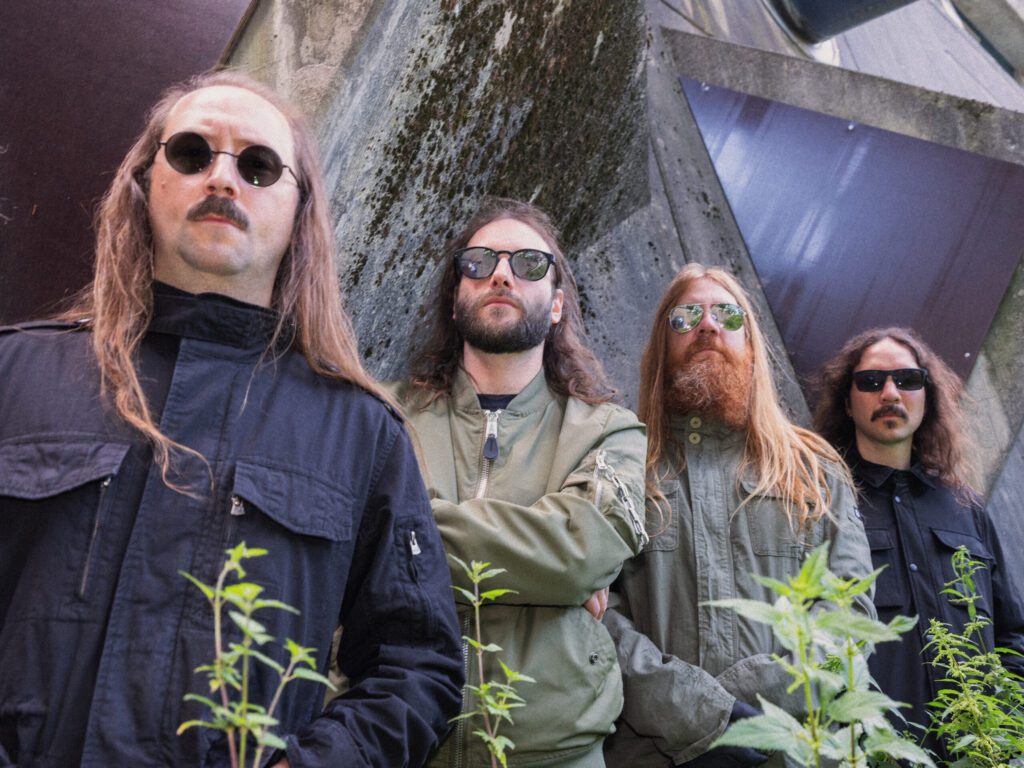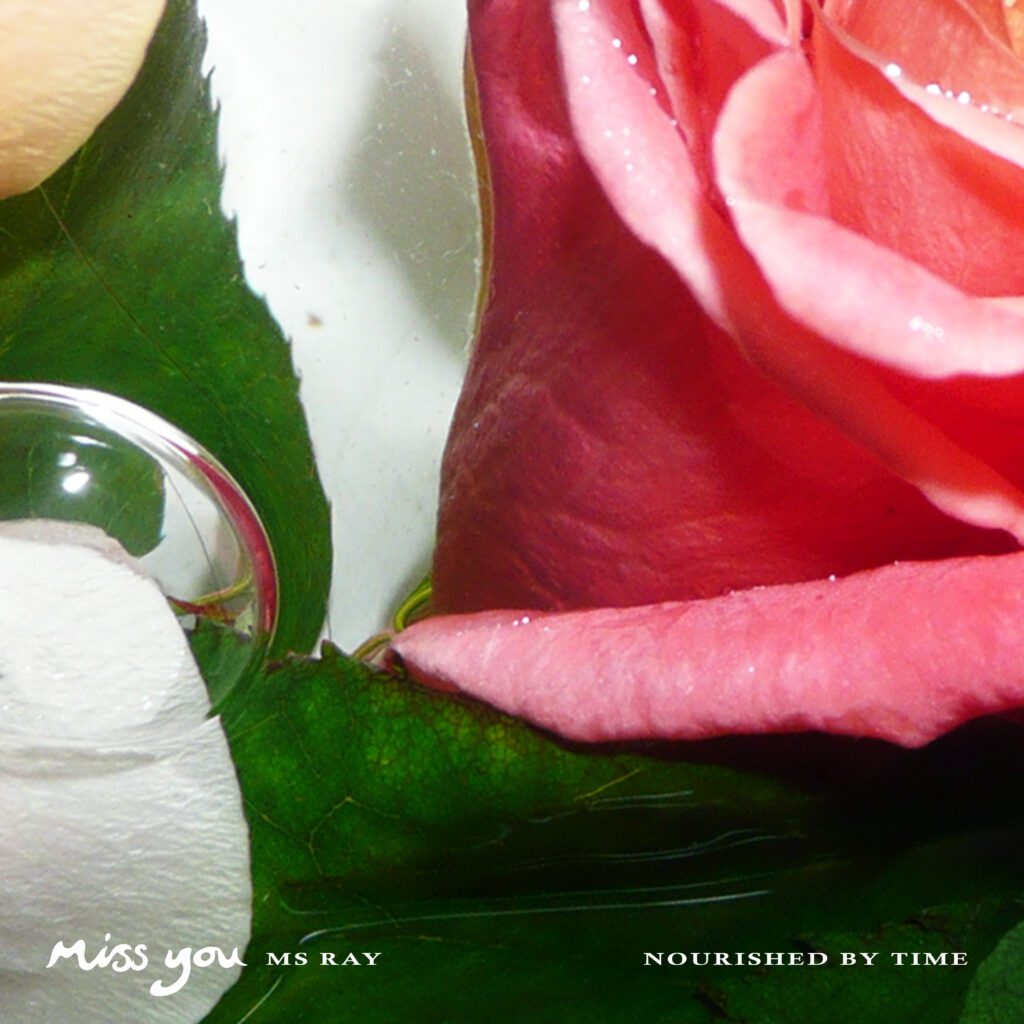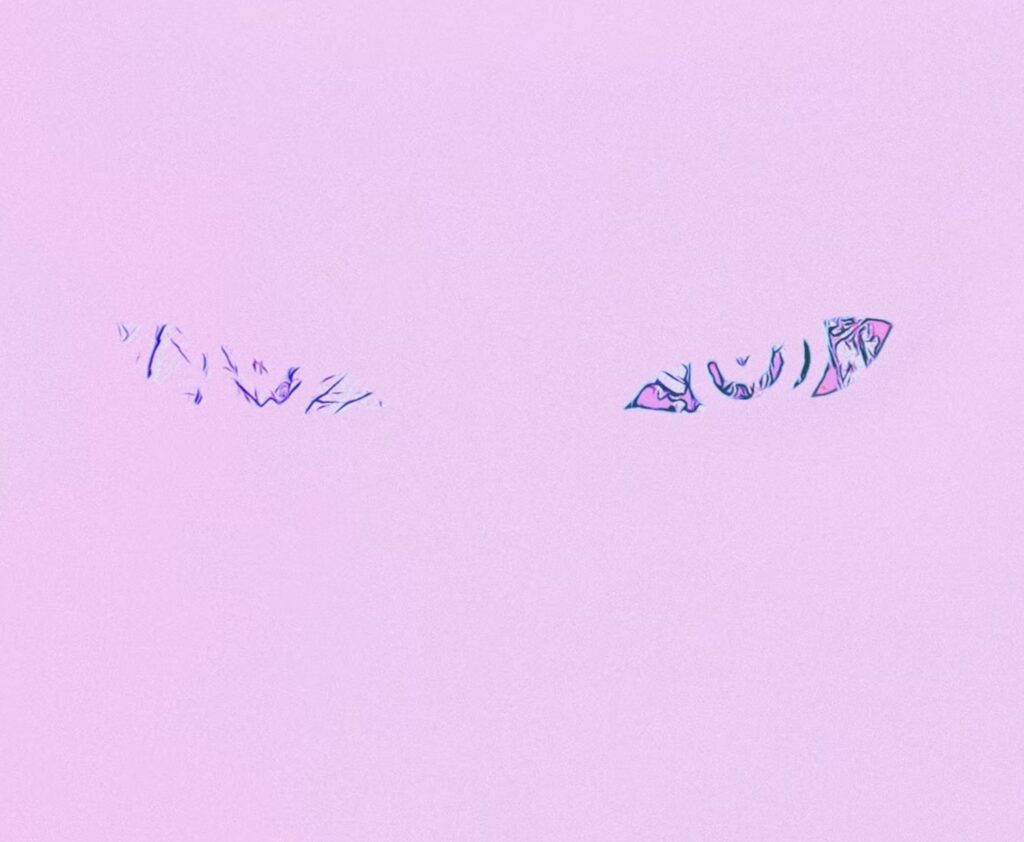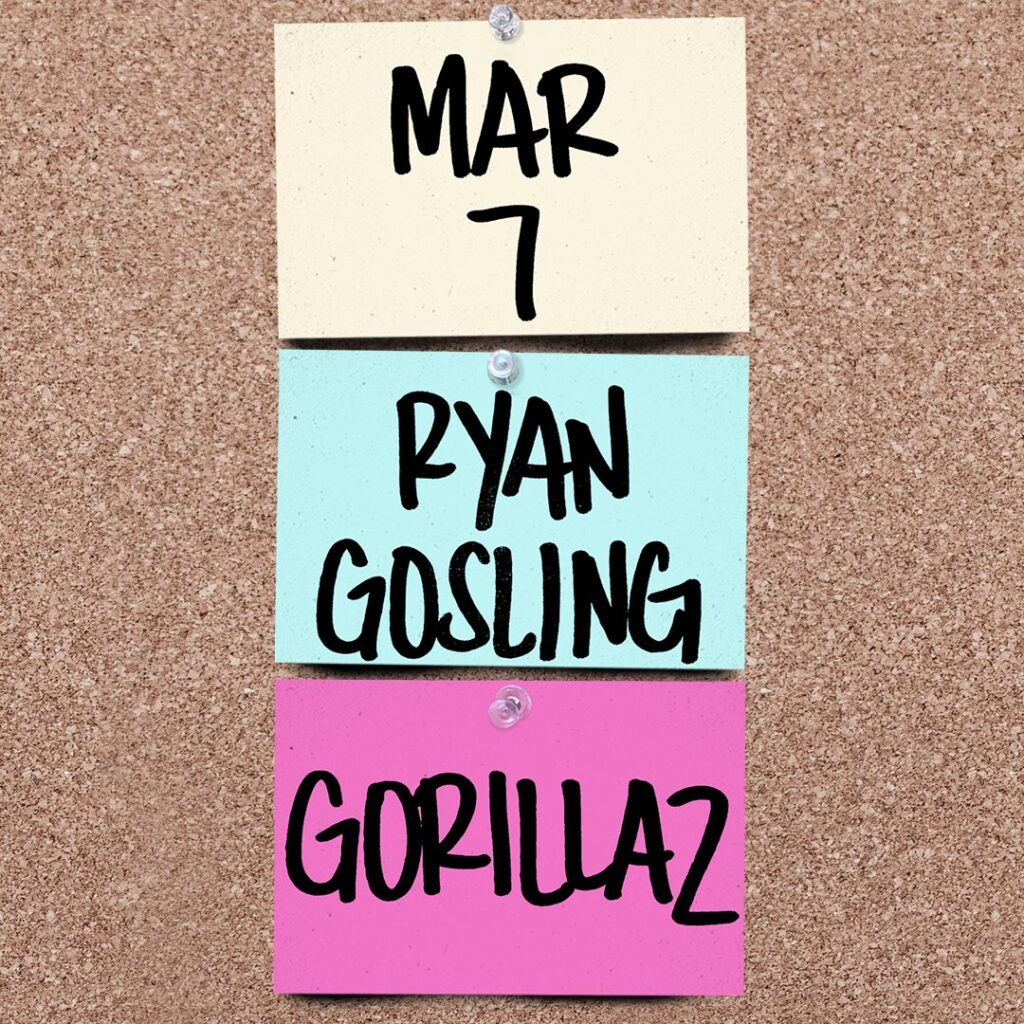
“We like when metal bands make non-metal records,” Riedl adds. “When I was a teenager getting into extreme, underground, black and death metal, I loved bands like Corrupted, who would do a second disc of entirely ambient music on their two-hour album. Or a band like Ulver, who goes acoustic immediately, and then comes back striking harder than ever, and then completely absolves themselves from metal. And all these bands incorporate soundscapes and atmosphere. They’re not afraid of it at all. They weren’t doing it to be contrarian. They weren’t trying to prove a point about how their music is highbrow or not. They were just artists following their journey, and illustrating to young, impressionable people like ourselves that it’s totally possible. It doesn’t matter if it’s okay, or cool. It’s physically possible, so why not you?”
Another crucial intermediate step was Luminescent Bridge, the double-A-side single the band released last fall. The beating melodic heart of Absolute Elsewhere is only so fully exposed because Bridge cleaved its chest open. “Both sides of Luminescent Bridge incorporate melody in a more palatable way than Hidden History,” Riedly says. “[There’s] the huge, heavy metal guitar solo on ‘Obliquity [Of The Ecliptic]’ at the end. It’s this soaring, melodic, triumphant thing. And then, ‘Luminescent Bridge’ is almost exclusively melodic. The only dissonance is in the space sounds at the beginning and the end. Everything else has the repeating guitar riff, and the repeating guitar melody, and the big, soaring, colorful melodies. But they’re very simple.”
Midway through our Zoom call, I venture a nerdy analogy: It seems to me like Blood Incantation are leveling their way up through a skill tree, the way your character does in an RPG. With each record, the band gains the XP to unlock new skills that they can wield as they continue to progress through the game — or rather, their career. They’re all nodding; this has come up before. Except the band identifies more with the game console itself.
“With every release, we are maxing out our hardware capabilities,” Barrett says. “And hopefully, we learn, and we return to it with the next release, and we’re able to push it even further, expanding our hardware.”
“I mean, we are notorious for playing ourselves in that way,” Faulk laughs. “Right now, I’m starting to practice the drum parts for the album. And every time we write a record, and I have to play the parts, I’m like, ‘Damn, why did we do that?’”
Blood Incantation’s hardware on Absolute Elsewhere is certainly the most powerful it’s ever been, and the All Gates Open documentary makes it clear that Hansa was the right proving ground for it. Hansa was the studio at the center of David Bowie and Iggy Pop’s overlapping Berlin eras, and Brian Eno was a regular at the mixing desk. Tangerine Dream, the single biggest influence on Timewave Zero, recorded the Force Majeure album there. The gear from all those immortal recordings is still in use, and Blood Incantation and Rizk were able to utilize it all during their extensive Hansa sessions.
“It helps to demystify and humanize these legendary people that we’re inspired by, by putting ourselves in not just the same artistic path, but using the exact same physical circuitry that these people used on records that we listen to,” Riedl says. “In most cases, if somebody had this gear, you wouldn’t be able to touch it. It would be, like, the rare section of somebody’s studio room, where you’re like, ‘That’s pretty cool.’ But it’s the entire studio, and it’s all up for grabs. There was no equipment in the studio that was on display to titillate us and yet we couldn’t use. Everything was there to be used and recorded with.”
In addition to the gear, the band also made use of a roster of guest musicians to help them push the album’s boundaries even further. Thorsten Quaeschning, who has led Tangerine Dream since 2005, contributed lush synth soundscapes to the second movement of “The Stargate.” Malte Gericke from Sijjin and Necros Christos added exclamatory death growls and spoken-word vocals (in his native German). Perhaps most crucially, Hällas keyboardist Nicklas Malmqvist joined the band as an honorary fifth member, layering in the piano, synthesizer, and Mellotron parts that make the album’s ’70s prog-rock inclinations manifest. Unlike Timewave Zero, which was conceived and executed entirely by the four members of Blood Incantation, the synth parts on Absolute Elsewhere came from outside of the metal sphere. That was critical.
“If a metal guy makes ambient, it’s gonna sound a certain type of way,” Riedl admits. “We naturally gravitate toward certain tritones, and the resolution of chords and keys into specific things, which sound dark or metal. But Nicklas, his ear is completely divorced from ‘metal-ness,’ which is why he brings so many crazy ideas, like the Mellotron flutes. In the documentary, you can see him say, ‘I don’t want this to sound too hippie.’ But that’s what we want! We can’t make it sound hippie, because we’ve been in metal bands for over 20 years. His brain is a lot more free to incorporate those types of inspirations.”
The purpose of the band reaching outside of their death metal cocoon to record at Hansa, or to play with people like Malmqvist and Quaeschning, isn’t purely for its own sake. It’s also about making explicit connections to show metalheads – traditionally not the most open-minded music fans – the ways in which these seemingly disparate disciplines interweave. Riedl brings up “Silvester Anfang,” the krautrock pioneer Conrad Schnitzler’s intro for Mayhem’s Deathcrush, as an example of what Blood Incantation want to demonstrate for people.
“It’s all trying to create this huge tapestry, which illustrates our place in this continuum of influence and creativity,” he says. “We’re trying to illustrate to the listener, not only their participation in this, but how much closer these circles are than they might assume.”
“It shows that you can be the most cult, underground, brutal black/death guy, and then also at the same time, be in the world of highbrow electronic music and ’70s prog-style retro bands,” Kolontyrsky adds. “As this band grows, it grows further into all of these corners at the same time. It pushes forward into each one of these niche little things.”
Riedl’s lyrics for Absolute Elsewhere – really, for the entire Blood Incantation discography –contain an echo of that idea. Beneath the veiled references to mysticism and the occult, the ancient aliens and Sumerian mythos, Riedl is fundamentally talking about human connection — about the collective consciousness that he believes we’re all tapped into, whether we understand it or not. The same ties that bind Mayhem to Can and Timeghoul to Tangerine Dream bind each of us to one another. “Recognize one’s place within the dance/ Know thy beat in time and whence to step,” Riedl sings on “The Message.” Learn that dance, and the apparent inscrutability of Blood Incantation begins to fall away.
“I wanted to speak directly to the listener,” Riedl says. “I didn’t want the person to have to fight to hear what I’m trying to talk about. I wanted them to realize, implicitly, that as they are listening to Blood Incantation, they are also a part of this thing that we are part of. It’s this huge, connected synergy, and this mental bridge connecting them, wherever they are, to wherever we are. They’re tapping in, so to speak.”



